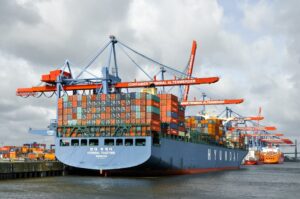It’s 2025, and if your business isn’t thinking past its own backyard online, you’re missing out. Like, a lot. I mean, the internet’s not exactly confined to one country, is it? So, why should your website be? It’s kind of a no-brainer, but getting your digital presence to shine in different corners of the world? That’s where things get, shall we say, a bit messy for most folks. This whole global digital marketing thing, specifically international SEO services, is a whole different ball game than what you probably think of as regular SEO. And honestly, it’s only getting more important.
You see, for ages, people just sort of assumed SEO was, well, SEO. You pick keywords, build some links, make your site fast, and boom, you rank. But that’s super local thinking. When you start dreaming bigger, like selling your cool stuff in Germany or getting noticed by potential clients in Japan, what worked here might just flop over there. It’s not just about translating your website, because, believe it or not, Google in Germany isn’t just a German version of Google US. Nope, it works differently, people search differently, and what they care about seeing pop up in results? Totally different.
Why Your Old SEO Playbook Won’t Cut It Globally
Think about it this way. If you’re a high school kid, you talk one way with your buddies, right? Then you talk another way to your grandma. And totally different if you’re trying to impress a teacher. Languages, slang, even what’s considered polite or normal behavior—it changes. The internet is kinda the same. Just copying and pasting your English website into Google Translate and slapping it on a new domain won’t make sense to someone in France looking for what you sell. They search using specific phrases, local slang sometimes, and they expect content that actually feels like it was made for them, not just some rushed translation.
Your existing SEO strategy, the one that probably got you rocking in your home country, is built on a foundation of local culture, local search habits, and local search engine rules. Taking that same foundation and trying to plop it down in a completely different country is like trying to use a map of Paris to navigate Tokyo. Good luck with that. You need to understand local search engines (yes, there are others besides Google, like Baidu in China or Yandex in Russia, and they are big deals there), cultural nuances (what sells well, what words are offensive, what imagery connects), and even legal stuff (privacy laws, advertising rules). Without that deep dive, you’re basically yelling into the void, just in a different language.
What Even Are International SEO Services, Anyway?
Okay, so we’ve established that global online visibility isn’t just slapping a flag icon on your site. So what are international SEO services actually doing? It’s about making sure your business shows up in search results for specific countries, specific languages, and specific cultural contexts. And it’s more than just a checklist.
It starts with figuring out where your audience actually is. Are they in Mexico, Spain, or Argentina? Because while they all speak Spanish, the words they use for things, their slang, even their search behavior can be totally different. This is called “localization,” and it’s way more than just translation. It’s about adapting your entire digital message to fit a new local market perfectly.
Technical Bits That Matter for Going Global
This stuff gets a bit nerdy, but it’s really important. When you’re trying to show up in different countries, search engines need to know which version of your site is for which country or language. If Google sees ten versions of your “About Us” page in ten different languages, it might get confused and not show any of them properly. That’s bad.
One big piece of this is something called `hreflang` tags. Sounds super complicated, right? But basically, it’s a tiny bit of code that tells Google, “Hey, this page is for English speakers in the US, but check out this other page, that one’s for English speakers in the UK, and this third one, that’s for German speakers in Germany.” Without these, search engines often get confused about which page to show where, and you might end up showing someone in Berlin your US English page, which is probably not what either of you want. Or worse, the search engine might think you have a bunch of duplicate content, and that’s a big no-no.
Then there’s domain strategy. Do you go for separate country-code top-level domains (ccTLDs) like `.de` for Germany or `.fr` for France? Or maybe subdomains like `de.yourwebsite.com`? Or just subfolders like `yourwebsite.com/de/`? Each has its own pros and cons for SEO and user perception. For instance, a local ccTLD often screams “local business” to a user, which builds trust. But it can be a beast to manage a bunch of separate websites. This choice is a big one, not just a casual decision.
And server location matters too! If your website’s server is in, say, Texas, and your target audience is in Australia, that extra distance can mean slower load times. And slow load times? Users hate ’em, and search engines penalize ’em. So sometimes, getting a content delivery network (CDN) or hosting your site closer to your global audience just makes sense.
Content That Connects (Not Just Translates)
You can’t just translate your blog posts word for word and expect them to work. Honestly, that’s a rookie move. What’s funny or clever in one culture might be totally flat or even offensive in another. A good international SEO strategy means doing proper keyword research for each target market. Not just translating keywords, but finding out what people actually search for in their language and locale. The phrase for “sneakers” in US English is “trainers” in UK English, and who knows what in Mandarin. This stuff matters for getting found.
Beyond keywords, it’s about creating content that truly speaks to that audience. What are their pain points? What are their aspirations? What kind of imagery do they respond to? Are there local holidays or events you can tie into? Are there local influencers who can help amplify your message? A proper international SEO service will push you to think past simple translation and into creating truly localized, culturally relevant content. This might mean totally different blog topics, different product descriptions, even different calls to action. It’s a lot of work, sure, but it’s what makes people click, stay, and eventually buy.
The Human Element: Why AI Can’t Just Do This for You (Yet)
Look, AI is super cool. It can translate pretty well now, and it can even whip up some decent content. But when it comes to international SEO, especially the bits about understanding culture and local quirks? AI isn’t quite there. It misses the jokes, the nuances, the underlying feelings people have when they search for something.
A real human, someone who understands a specific market deeply, can spot when a translated keyword sounds clunky or totally wrong. They can tell you if a certain color or image on your website has a negative connotation in a specific culture. Or they might point out that a certain product feature you highlight in the US just isn’t a selling point in, say, Japan, where they care about something else entirely. These little things, the ones that seem small, actually make a huge difference in how successful your international efforts are. It’s not just about algorithms; it’s about people. A local SEO expert who’s actually lived or worked in that country? They’ll bring so much more to the table than any AI ever could. The “feel” of a website for a specific audience? A human gets that.
Monitoring and Adapting: It’s Never Done
Once you’ve got your international SEO strategy rolling, you can’t just set it and forget it. Oh no. Search engine algorithms change, user behavior shifts, and global events can totally mess with search trends. Remember when everyone suddenly searched for “face masks” or “work from home desks”? That sort of thing happens.
So, part of international SEO services is constant monitoring. Are your new localized pages ranking? Are they bringing in the right kind of traffic? Are people sticking around on those pages or bouncing right off? And if something isn’t working, what needs to change? Maybe the keywords were off, or the content wasn’t engaging enough, or perhaps a competitor just dropped a really good localized campaign. It’s about being nimble, trying new things, and not being afraid to pivot if something isn’t landing right. It’s kinda like trying to keep your grades up; you gotta keep studying, right? Not just cram for one test and then forget everything.
The Payoff: Why Bother with All This Trouble?
So, after all that talk about `hreflang` tags and cultural nuance, why even bother? Because the payoff can be huge. Imagine tapping into new markets with millions, maybe even billions, of potential customers who’ve never even heard of you. That’s a massive growth opportunity.
When your website truly resonates with an international audience, you don’t just get more traffic. You get more qualified traffic. People who actually want what you’re selling. And when they find you through a search that feels tailored to them, their trust in your brand goes way up. It’s not just about selling more stuff; it’s about building a globally recognized brand that people connect with, no matter where they are. In 2025, if you’re not thinking globally with your SEO, you’re letting a ton of money and opportunity just walk by.
Frequently Asked Questions About International SEO Services
1. Is international SEO just about translating my website?
Nope, not even close. Translation is just step one. International SEO goes way deeper, getting into cultural stuff, understanding how people search in different countries, and setting up your website’s technical bits so search engines know exactly which version is for which country. It’s about making your content feel like it was made for that local audience, not just copied over.
2. Do I need a separate website for every country I target?
Not necessarily. It depends on a few things, like how many countries you’re going after and how different those markets are. You could use separate country-specific domains (like `.de` for Germany), subdomains (like `de.yourbrand.com`), or just different folders on your main site (like `yourbrand.com/de/`). Each option has its own upsides and downsides for SEO and for how much work it takes to manage. Someone working on international SEO services can help you figure out the best one.
3. What’s the biggest mistake businesses make with international SEO?
Oh, there are a few big ones. Probably the biggest is just translating content without doing proper keyword research for the new language/country. Or ignoring local search engine preferences (like Baidu in China). Also, not using `hreflang` tags correctly can really mess things up, making Google confused about which page to show where.
4. How long does it take to see results from international SEO?
Like any SEO work, it’s not an overnight thing. You’re looking at a few months, usually 3 to 6 months, to start seeing some real movement in rankings and traffic. But consistent effort, keeping up with local trends, and fine-tuning your strategy means the results will keep getting better over time. It’s an ongoing process, not a one-and-done project.
5. Can I do international SEO myself, or do I need a special agency?
You could try to do some of it yourself, especially if you have an in-house team with language skills. But honestly, it gets really complicated, really fast. The technical stuff, knowing the nuances of different search engines globally, understanding cultural sensitivities, and keeping up with changes—that’s a lot to handle. Most businesses find it’s way more effective, and less headache, to get help from experts who specialize in international SEO services. They’ve seen it all, basically.















